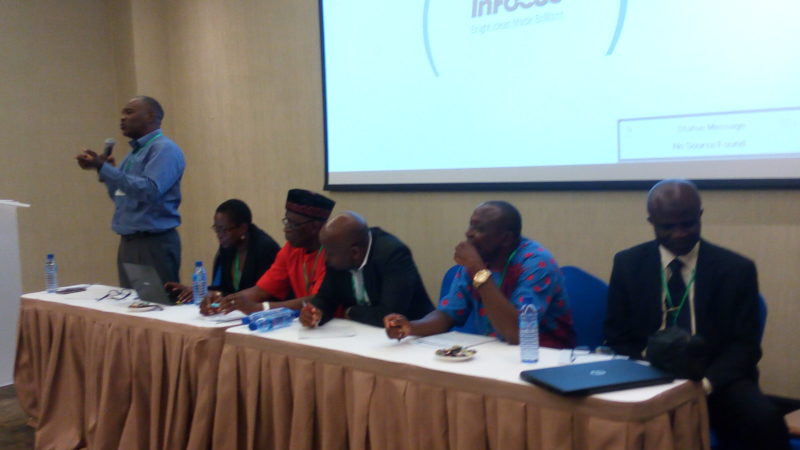Aiming to completely phase-out hydrochlorofluorocarbons (HCFCs), an ozone-depleting substance (ODS) by 2040, Nigeria on Thursday in Lagos took a major step towards realising the goal when stakeholders gathered to review and validate the findings of a survey, preparatory to the next stage of the initiative.

HCFCs are a group of man-made compounds containing carbon, hydrogen, chlorine and fluorine atoms considered to be destructive to the ozone layer, a region of the earth’s atmosphere that absorbs most of the sun’s ultraviolet (UV) radiation. HCFCs are being phased out globally under the Montreal Protocol on Substances that Deplete the Ozone Layer to reduce their abundance and protect the fragile ozone layer.
The Federal Ministry of Environment, in collaboration with the United Nations Industrial Development Organisation (UNIDO) – the cooperating agency – has been implementing the Montreal Protocol’s Hydrichlorofluorocarbons Phase-out Management Plan (HPMP) project. As part of activities for preparation of Stage 2 of the HPMP, a nationwide survey of companies in the Refrigeration and Air-conditioning Manufacturing (RACM) sector was conducted to update information with regards to HCFC-22 consumption data and technology choices.
While seeking to validate the survey results and ushering in the next phase of the HPMP, participants at the daylong forum also attempted to unravel how financial institutions can be encouraged to provide the necessary support to stakeholders in the implementation of the Montreal Protocol’s ozone-depleting substance (ODS) phase-out programme in the country. They also sought to develop strategy for promoting and marketing of ozone and low global-warming alternative substances.
Dr Chuma Ezedinma, Officer-in-Charge, UNIDO Regional Office in Nigeria, disclosed that, under the first phase of the HPMP, 75 low pressure foaming machines with a maximum output of 39kg/min and spare parts were distributed in 13 states, several training held, and technological promotions of low ozone-depleting product (ODP) chemicals carried out. According to him, the initial 30 machines distributed in Abuja and Ibadan was to contribute to the phase-out of 96.35MT (metric tonnes) or 10.6ODP tonnes of HCFC 141B.
He said: “As a pre-requisite and procedural approach to a successful programme development, the national survey for the RACM sector enterprises was carried out and updated. This will help to determine present dynamics on the market and the drivers of the trends in each of the subsector’s consumption. We have visited the enterprises and obtained information which will also help us ascertain the progress the country is making in the phase-out process.”
Dr Ezedinma reaffirmed UNIDO’s commitment towards supporting the Nigerian government and promoting sustainable industrialisation without compromising the environment, adding that the organisation, in partnership with government, has developed and implemented various projects to alleviate environmental problems and promote an enabling environment for industries to thrive.
UNIDO, he added, developed the HPMP project with the Federal Ministry of Environment and the United Nations Development Programme (UNDP).
The Montreal Protocol was ratified by all countries since 1987 but finally came into force on January 1, 1989 with 46 signatories and 197 member countries. Nigeria joined 31 October, 1988.
